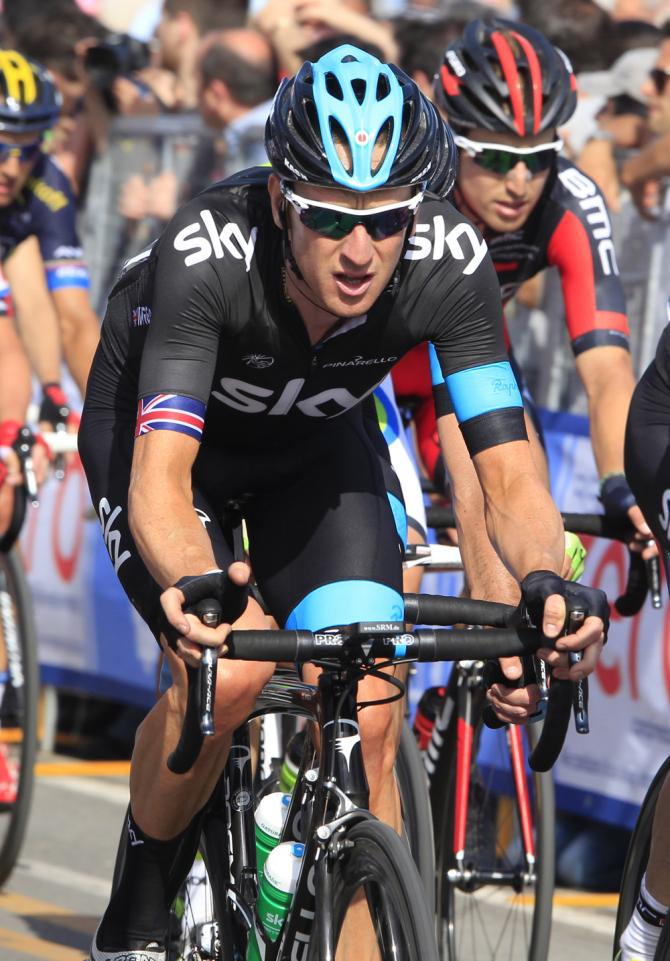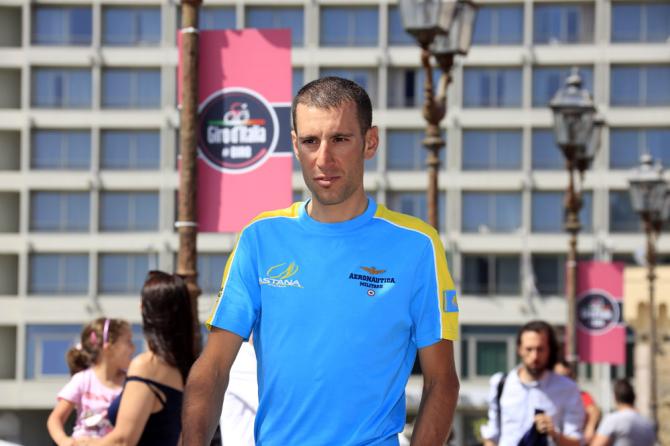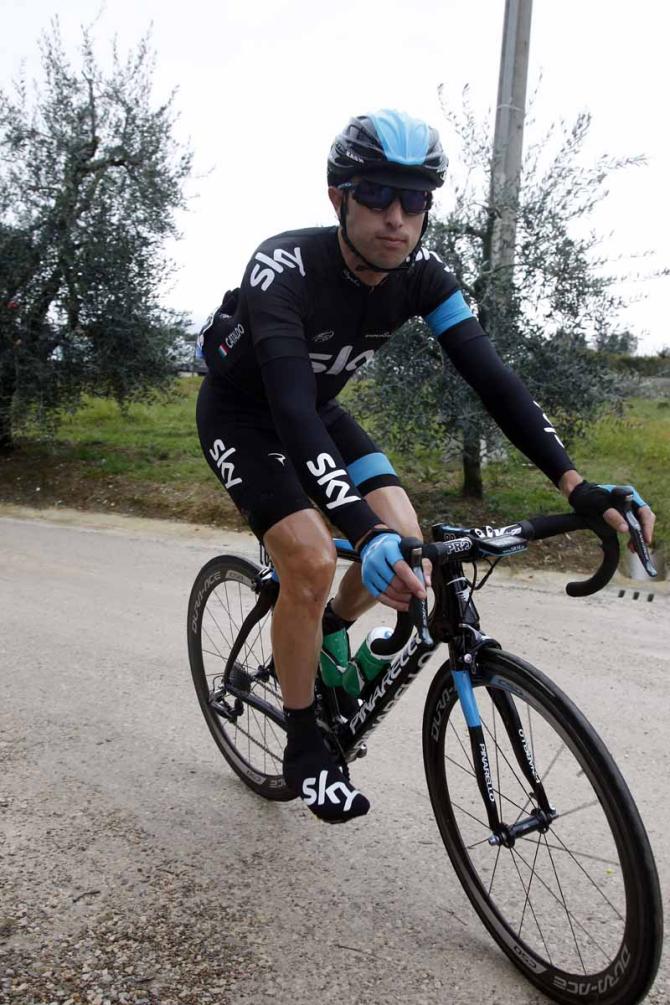Round one for Wiggins and Nibali in Ischia
Astana and Sky go head-to-head in team time trial



Bradley Wiggins versus Vincenzo Nibali, round one. After 130 kilometres of phoney war through the streets of Naples on Saturday afternoon, the Giro d'Italia caravan heads for Ischia for stage two and the first reference point of the battle for the maglia rosa - a 17.4 kilometre team time trial along winding coastal roads.
The message from both the Sky and Astana camps on the eve of battle is similarly understated. The Giro is a marathon and not a sprint, and the seconds gained and lost in Ischia ought to count for relatively little by the time the race reaches Brescia in three weeks' time.
Even so, neither Wiggins nor Nibali will want to concede any quarter at this early juncture. Indeed, even before a pedal was turned in anger at the Giro, the two squads were matching one another in preparing for the event, sending advance parties to the island to film the course.
"We've haven't been able to see it in person but we've managed to have a look at it on the video, so we've had a chance to study it," Sky's Dario Cataldo told Cyclingnews in Naples. "It's a technical and very hard, so we'll definitely need to take a good look at it the morning of the time trial."
While Sky press officer Dario Cioni's advance mission to Ischia with a video camera was widely publicised two weeks ago, Astana were also inspecting the course, as manager Beppe Martinelli explained. "We sent a directeur sportif to film it, and we've looked at it quite a bit," said Martinelli, whose impressions were similar to those of Cataldo: "It's certainly a very technical course."
Both Cataldo and Martinelli were in agreement that the time won and lost on the Ischia course will be minimal - not so much because of the brevity of the stage, but because of scant opportunities it allows for opening the throttle fully. The differences will arise primarily from technical errors rather than raw power.
"I don't expect big time gaps because the technical nature of the course means that you can't really go full-on too often," Cataldo said, and again, his thinking resonated with that of Martinelli.
Get The Leadout Newsletter
The latest race content, interviews, features, reviews and expert buying guides, direct to your inbox!
"I don't think there'll be big gaps between the favourites because you won't be able to go at very high speed," the Astana manager said. "In the team time trial, you can gain a little bit of time or lose it, but there's a lot of time afterwards to make up for that either way. So whether we gain or lose ten or fifteen seconds, it's not the case that the Giro is over."
The rolling nature of the Ischia course means that the traditional conundrum of the team time trial - coordinating the efforts of nine riders of varying levels of strength - is exacerbated yet further.
"It’s quite short so managing your energy isn't going to be a problem on a time trial like this, but because it's so technical, managing the team and keeping the formation tight and together is certainly going to be hard," Cataldo said.
In the Astana camp, maintaining the formation is also a concern. "In a normal team time trial you can spend a bit of time sitting in the wheels if you have a difficult moment and recover," Martinelli told Cyclingnews. "That's going to be more difficult here, so it's up to the guys who aren’t feeling good to understand quickly how much energy they have and make sure they don't burn themselves up too quickly."
But while virtual reconnaissance and video-taping time trial courses might be the latest battleground in the marginal gains arms race, Sky directeur sportif Rod Ellingworth kept things in perspective, noting that the most important preview of all will come on Sunday morning, when the riders arrive in Ischia and ride over the course for themselves.
"The course isn't as technical as people make out, but until you know things like exactly where the barriers are on the day and you've done the final recon, it won't be exactly possible to know what it’s like," Ellingworth said.

Barry Ryan was Head of Features at Cyclingnews. He has covered professional cycling since 2010, reporting from the Tour de France, Giro d’Italia and events from Argentina to Japan. His writing has appeared in The Independent, Procycling and Cycling Plus. He is the author of The Ascent: Sean Kelly, Stephen Roche and the Rise of Irish Cycling’s Golden Generation, published by Gill Books.